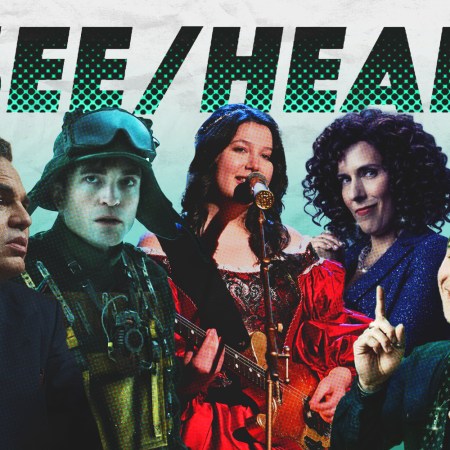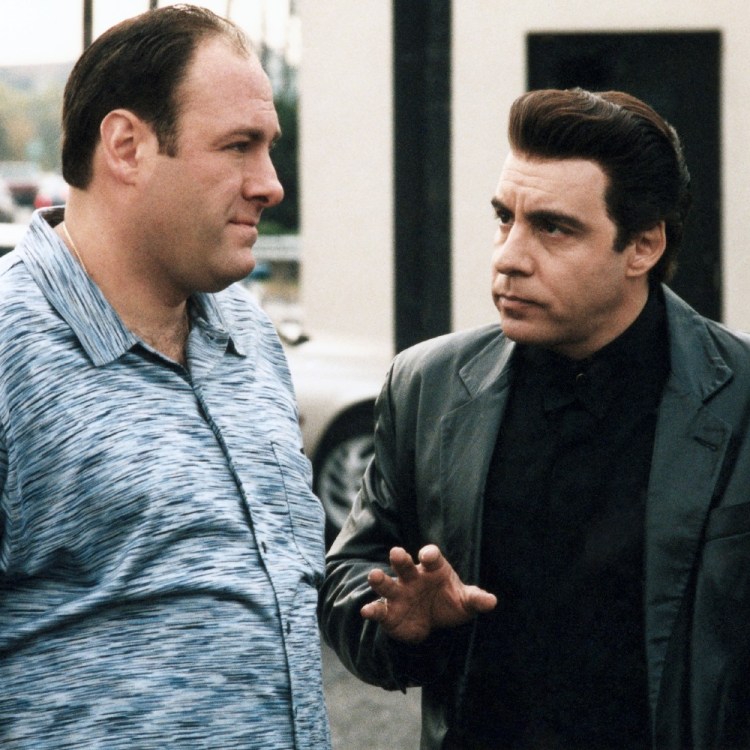Warning: This post contains spoilers for “Prelude,” the season four premiere of The Righteous Gemstones.
In the current era of prestige comedy, there are a few TV shows that have pushed the limits of the genre’s traditional format so much that many have questioned whether they’re really comedies at all. We’ve come to expect a certain amount of experimentation from The Bear, whether it’s the episode in the first season that was filmed in one long, continuous take, or the third season’s premiere, which was told nonlinearly through a series of pieced-together flashbacks. More recently, The White Lotus began working in some Sopranos-esque dream sequences, rich with symbolism and possible hints about what doom lies ahead for its ultra-wealthy characters. But surprisingly, it was HBO’s other Sunday night comedy that took one of the biggest risks in recent memory.
Last night, The Righteous Gemstones — Danny McBride’s raunchy, beloved comedy about a dysfunctional family of televangelists — returned for its fourth and final season. Well, sort of. After nearly two years off the air, the show kicked off its final chapter with a standalone episode that didn’t feature a single Gemstones cast member and included far more gore and drama than it did jokes. “Prelude” is set during the Civil War, 160 years before the present-day timeline, and it’s centered wholly around a character played by Bradley Cooper, who seems like a lock for this year’s Outstanding Guest Actor in a Comedy Series Emmy. Cooper plays Elijah Gemstone, a murderous con man who finds himself posing as a chaplain embedded with a Confederate army unit and unwittingly sets into motion the Gemstone family’s multi-generational history of religious hypocrisy.
It was a huge swing for the show. Instead of a goofy musical number from Uncle Baby Billy, we got multiple battlefield amputations and a Ken Burns-style montage of exhausted, shell-shocked soldiers staring straight into the camera. But as the episode’s rare 100% on Rotten Tomatoes indicates, that big swing paid off. “Prelude” is, for the most part, tonally unlike anything the show has done to this point, and it’s one of the best episodes of television — drama, comedy or otherwise — I’ve seen in a long time.
When we first meet Elijah, he’s sitting menacingly in the back of a church, watching the greedy pastor who had just spoken about “states’ rights” and why God’s on the side of the Confederacy pocket the collection plate money. “Taking money from women whose husbands are off getting themselves killed don’t seem too righteous to me,” he says. But before we get it twisted and assume he’s some sort of vigilante Robin Hood, he shoots the pastor dead and takes the money for himself, along with the church’s gold-plated Bible. He’s interrupted by a group of soldiers who are there to recruit the now-dead clergyman to serve as their unit’s chaplain, and when he finds out the gig pays $50 a month, he pops back into the church, busts the corpse’s face in so that it’s unrecognizable and leaves a note identifying the body as his own so he can assume his lucrative new identity as a man of God.
As you might expect, he’s not very good at the job. (Cooper’s delivery of “Okay, well, I think that’s it, I guess” instead of an “amen” when Elijah’s tasked with praying over a dying soldier is perfection.) Eventually, another two-bit criminal in the unit recognizes him and proposes that they team up to swindle some soldiers out of a bunch of money playing cards. Once the money’s been secured, however, Elijah strangles the guy from behind and dumps his body in an already-occupied coffin to keep the cash for himself and prevent his cover from being blown.
When his unit is ambushed later on, the Union officer who captured them sees his gold Bible and informs him he’s free to go — they don’t execute preachers, only soldiers — after he offers one last prayer for the 11 less fortunate men who are about to face a firing squad. It’s here where Elijah’s path to redemption begins. “They killed people because they had to. Now I know that ain’t great, but it’s better than killing for money or out of meanness,” he says before telling Jesus that he gives “each of them my highest recommendation that they get into heaven.” After they’re all executed, he solemnly piles their bodies into a cart and brings them back to camp, informing the rest of his company that it was God who spared him, and cracks open that golden Bible to do some reading.
We know what happens over the subsequent century and a half. The Gemstone family continues Elijah’s tradition of profiting off of religion and using other people’s faith as a means of hiding their own indiscretions. None of the present-day Gemstones have murdered anyone, of course, but they’ve lied, cheated and stolen. They’re big personalities that often verge on cartoonish, but in recent seasons, they’ve become more grounded; once the illusion of perfection was shattered at the end of the first season’s blackmail plot, there was room for growth. It’s remarkable how McBride — who co-wrote and directed the episode — is able to consolidate the show’s entire worldview into one 40-minute episode. Did we expect it to be a gruesome, harrowing Civil War tale starring a five-time Oscar acting nominee? Of course not. But it’s amazing how well it works.
Cooper turns in a hell of a performance with the dramatic stuff, as one might expect him to, but what makes the whole thing even more impressive is the way he keeps it rooted in the language of the show. The entire time, Cooper sounds like he’s doing an incredibly subtle but accurate Danny McBride impression, nailing the cadence of his speech and his mannerisms. (He claims he’d never seen the show before he filmed his episode, but I don’t buy it. Unless maybe he happens to be a big Eastbound & Down fan.) Maybe McBride deserves some credit for that, too — when you’re also the one writing the dialogue, it’s easy for it to come out sounding like you. Even some of the episode’s more gruesome moments also read as pretty funny, like when a young soldier sitting across from Elijah repeatedly, confidently insists that he’ll never get killed in battle because he’s so pious, only to immediately be shot in the face by sniper fire. Is McBride making a point about ego and pride, reminding us that war is hell and the world is chaos, or making a perfectly timed joke? I think it’s all three.
Nearly every character that McBride has ever written has been an overly confident, flawed person who eventually finds some semblance of redemption when they gain some self-awareness. As “Prelude” reminds us, no one is perfect. (As Elijah Gemstone says during his improvised sermon, “Quit competing with God and just do your best. All right, I’m not gonna take up the rest of your Sunday morning. I feel like we’ve been here for an hour.”) But the ones who are either too dumb or arrogant to realize their shit stinks just as much as anyone else’s are the ones who run into trouble — and they’re the easiest to laugh at.
This article appeared in an InsideHook newsletter. Sign up for free to get more on travel, wellness, style, drinking, and culture.

























